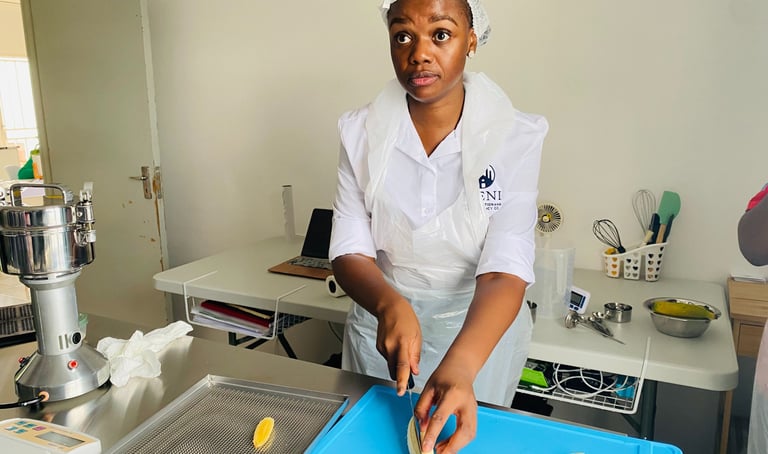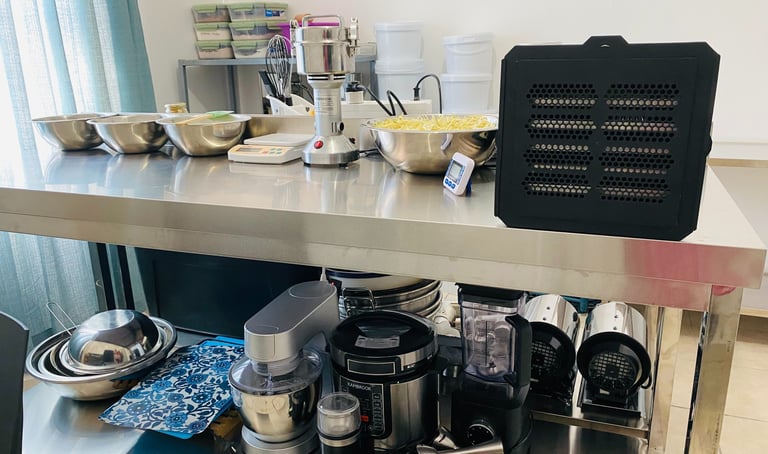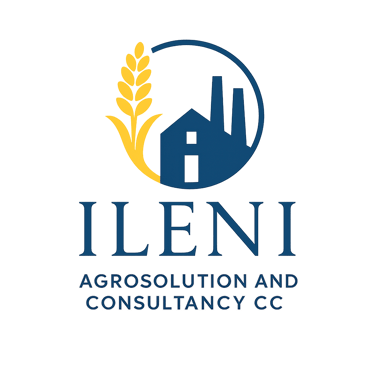Agroprocessing
Through our Agroprocessing Department, Ileni Agrosolutions drives solutions that address Namibia’s food and employment challenges by:
Reducing post-harvest losses through improved storage, handling, and preservation techniques.
Providing training and technical support to MSMEs, farmers, and youth-led enterprises.
Promoting indigenous food innovation to increase local value addition and cultural pride.
Ensuring food safety and quality through scientific and regulatory compliance.
Fostering inclusive economic growth that empowers rural communities, especially women and youth.
By integrating innovation, nutrition, and sustainability, we envision a resilient and inclusive agroprocessing sector that transforms Namibia’s agricultural potential into a driver of food security, job creation, and national prosperity.
Namibia’s food system faces significant challenges that threaten both food security and economic growth. Each year, up to 30% of maize and millet is lost after harvest—well above the SADC average of 18%. The country imports over N$1.8 billion in food annually while exporting only N$112 million (NAB, 2022). At the same time, 38% of Namibians experience acute food insecurity (IPC, 2024), and youth unemployment stands at 38% nationally and exceeds 50% in the northern regions (World Bank, NSA). These figures reveal the urgent need to strengthen Namibia’s agro-food systems through innovation, capacity building, and local value addition.
Our Focus and Impact
Agroprocessing is the transformation of raw agricultural commodities—such as crops, livestock, and indigenous foods—into safe, nutritious, and market-ready products. This includes cleaning, sorting, packaging, preservation (drying, canning, fermenting), and advanced manufacturing (milling, extraction etc).
Beyond preservation, agroprocessing adds value, extends shelf life, and meets consumer demand for quality and convenience.
At Ileni Agrosolution and Consultancy CC, our Agroprocessing Division is dedicated to harnessing the potential of Namibia’s agricultural resources through training, research, consultancy, and community-based initiatives. We aim to reduce post-harvest losses, enhance product quality and safety, and empower farmers, youth, and MSMEs to transform raw materials into valuable products that drive sustainable livelihoods and economic resilience.
This division operates a fully functional agro-processing laboratory located in Ongwediva, Extension 11. Our laboratory is currently actively engaged in:
Product development and value addition
Client support in product formulation, equipment selection for scaling, and hands-on training
Educational outreach — hosting regular tours for schools and university students on agro-processing and food safety




Contact us
Your trusted partner in agroprocessing, nutrition, and food safety.
© 2025. All rights reserved.
+264 81 4917954
mayoo86m@gmail.com
ILeni Agrosolution & Consultancy CC
Company Registration: CC/2025/05699
